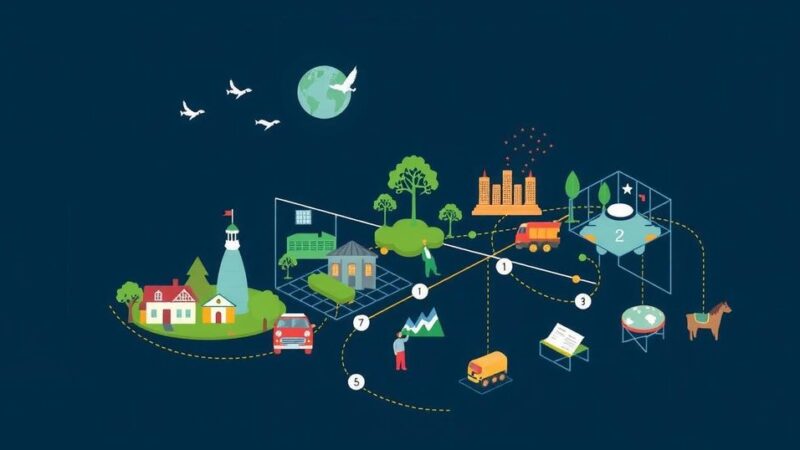The 2023/2024 El Niño event has caused unprecedented drought across Southern Africa, leading to severe food insecurity affecting nearly 23 million people, especially in Malawi, Zambia, Zimbabwe, and Mozambique. The crisis is exacerbated by existing health challenges, including cholera outbreaks and malnutrition among children, necessitating urgent humanitarian assistance and coordinated response efforts.
The ongoing 2023/2024 El Niño phenomenon has precipitated severe drought conditions across Southern Africa, marked by delayed rainfall, prolonged dry spells, and exceptionally high temperatures. This drought is reported to be the most devastating event from El Niño in the region in the past 40 years, exacerbating existing hardships faced by communities due to previous crop failures and challenging economic circumstances. The drought has resulted in significant reductions in maize production, with harvests falling well below the five-year averages, according to assessments from national government bodies and FEWS NET. The consequences of this climatic event have been dire, leaving nearly 23 million individuals struggling with acute food insecurity, particularly affecting countries like Malawi, Zambia, Zimbabwe, and Mozambique. FEWS NET predicts that approximately 14 million people will require immediate humanitarian aid during the crucial lean season from October to December 2024. Six countries, including Botswana, Lesotho, Malawi, Namibia, Zambia, and Zimbabwe, have officially declared national drought disasters, while Angola and Mozambique contend with significant food insecurity, with about 1.8 million and 3.3 million individuals in those countries, respectively. The effects of the drought extend to vulnerable populations, with over 2 million children projected to suffer from acute malnutrition in 2024. The drought has also displaced thousands of people and caused a worrying rise in food shortages and water scarcity, posing grave challenges to agriculture. This hydrological crisis emerges as the region simultaneously confronts one of its worst cholera epidemics in decades, which, despite some stabilization, continues to be hindered by inadequate water supply affecting hygiene and sanitation measures. Countries such as Malawi and Mozambique remain on alert for further cholera outbreaks. Moreover, the drought conditions increase the likelihood of transmission of HIV and AIDS, exacerbate mental health challenges, and may lead to increased gender-based violence; thus, highlighting the urgent necessity for enhanced preparedness and response strategies. The compounded crises of El Niño, cholera, armed conflicts, and climate change have severely disrupted health systems throughout Southern Africa, hampering access to vital sexual and reproductive health services. A notable concern is the internal displacement of over one million individuals due to disasters and climate-related changes, predominantly from Malawi, Mozambique, and Zimbabwe.
Southern Africa is currently experiencing an unprecedented drought crisis correlated with the 2023/2024 El Niño event. This climatic phenomenon has historically influenced weather extremes in the region, leading to delayed rains and heightened temperatures that have further intensified existing vulnerabilities within populations dependent on agriculture. The impact of poor harvests and food insecurity presents a multifaceted challenge, taking a toll on public health and food systems. As humanitarian needs rise, understanding these dynamics is crucial for an effective response to the unfolding crisis, particularly in countries disproportionately affected by climatic variations and economic instability. This ongoing situation necessitates an exploration of interconnected health risks, including malnutrition and the resurgence of epidemic threats.
The El Niño-induced drought in Southern Africa marks a critical humanitarian crisis, with severe implications for food security, health, and overall community stability across the region. The confluence of environmental, health, and socio-economic challenges exacerbated by the drought necessitates urgent action to address the needs of millions facing food insecurity and health risks. The situation is dire, highlighting the need for comprehensive preparedness and coordinated response efforts to mitigate the impacts of this disaster and safeguard the affected populations’ welfare. Enhanced intervention strategies are vital to address the complex interplay of challenges brought on by climate change and regional vulnerabilities.
Original Source: reliefweb.int






